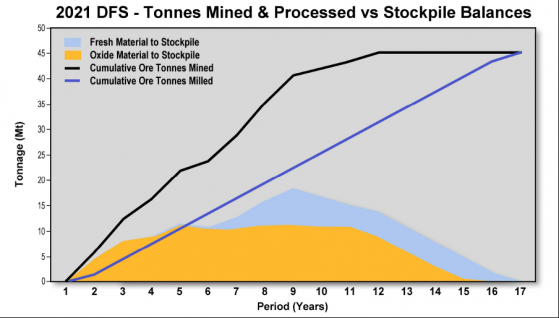Toubani Resources Inc (ASX:TRE, OTC:AGGFF) has its sights set on an optimised definitive feasibility study (DFS) for the 3.1-million-ounce Kobada Gold Project in southern Mali.
The company is on a mission to develop West Africa’s next major gold mine, underpinned by a substantial initial oxide mining operation.
With this goal in mind, the revitalised DFS (first released in 2021) will consider how Toubani can achieve a higher processing rate and boost Kobada’s future annual production.
What’s the angle?
By kicking things off with bulk tonnage oxide mining — rather than moving straight to the fresh rock — Toubani believes it can reduce Kobada’s technical risk profile and commit to minimal drilling in the mine’s first stage.
As such, the DFS will evaluate the best way to marry both approaches — just as Toubani engages with engineering groups to advance Kobada’s development.
The DFS update will kick off this month aimed at refining both the oxide and fresh rock mining phases, including the significant stockpile balances built over the first 10 years of the 2021 mine plan. Work on the study is expected to wrap up by the end of 2023.
The 2021 DFS mapped the future tonnes mined and processed against Kobada’s stockpile balances.
In the meantime, a targeted drill program is in the works, designed to prove up inferred resources within the 2021 DFS pit design.
Standing above its peers
Toubani CEO Phil Russo said the team was excited to optimise the DFS and realise Kobada’s full-scale potential.
“The DFS update will pursue the potential for the project to be reoptimized to a throughput level that more aptly supports a bulk mining and lower overall technical risk approach, which is further strengthened when considering the significant existing resources of oxide, free digging material at Kobada.
“We believe Kobada has all the attributes to distinguish itself from its other West African development peers, being free milling ore, a large oxide resource with attractive fresh rock optionality, while also permitted.
“We look forward to completing the update to the DFS later this year to aim to demonstrate the robustness and lower overall risk profile that a larger Kobada project could deliver.”
Read more on Proactive Investors AU
